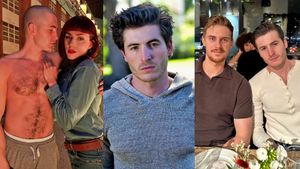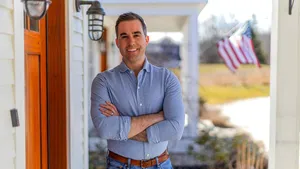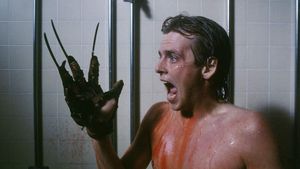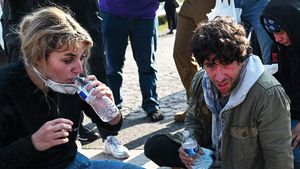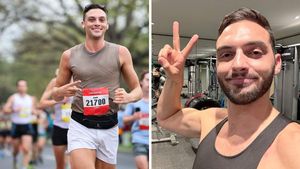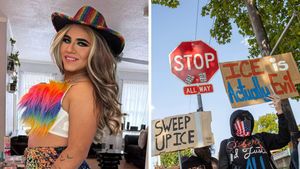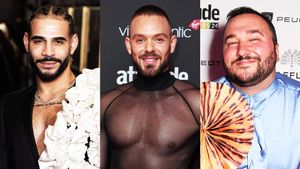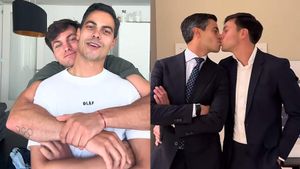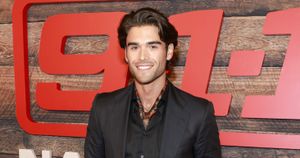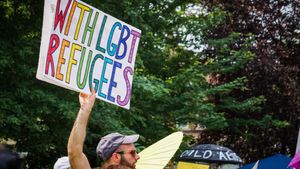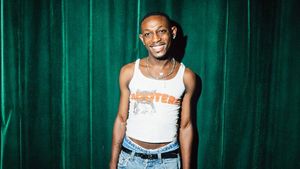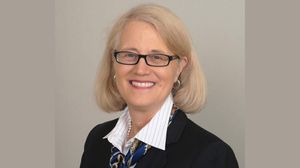Treatment GuideJust DiagnosedSex & DatingAfrican AmericanStigmaAsk the HIV DocPrEP En EspañolNewsVoicesPrint IssueVideoOut 100
CONTACTCAREER OPPORTUNITIESADVERTISE WITH USPRIVACY POLICYPRIVACY PREFERENCESTERMS OF USELEGAL NOTICE
© 2025 Pride Publishing Inc.
All Rights reserved
All Rights reserved
By continuing to use our site, you agree to our Privacy Policy and Terms of Use.
For many people, 2010 was a difficult year. But for AIDS activist Cleo Manago, last year was a triumph'and 2011 is looking good too. Working for decades to fight HIV among African-Americans, Manago saw three of his innovative race-based programs receive millions of dollars in funding from the Centers for Disease Control and Prevention in 2010. Already helping thousands of people, Manago's initiatives now have the potential to reach countless more. Founder of the AmASSI (African-American Advocacy, Support-Services, and Survival Institute) Centers for Wellness, Education, and Culture, the 47-year-old Manago has devoted his career to reducing internalized racism among African-Americans and homophobia among same-gender-loving black men since the first center opened in Inglewood, Calif., in 1989. He stresses the term same-gender loving as opposed to gay, and says the difference between the terms is what prompted him to open the center. 'When this disease began to get federal funding and foundation support, it occurred inside a white gay identity vacuum,' Manago says. 'There was a need for more inclusion of men at risk who go to prison, who are bisexual, who sleep with men but don't identify as gay.' AmASSI, which now operates centers in Inglewood, Oakland, Atlanta, and Harlem, and initiatives in Baltimore and Johannesburg, South Africa, offers more than testing, treatment, and help with drug adherence; there are substance abuse prevention programs, art shows, and physical fitness and self-defense classes. 'They're cultural centers as opposed to health centers,' Manago says, adding that the centers serve women as well. 'When it comes to primary prevention, HIV centers don't work because people won't access them until they have a crisis or are symptomatic.' At the Inglewood wellness center in 1994, Manago gathered a group of black men who had sex with men and queried them on their HIV knowledge. He found that many of the men were HIV-literate; they knew what caused AIDS, but they nevertheless continued to routinely engage in unsafe sex. 'A lot of these men had questionable value for their sexuality and their [African-American] community,' Manago says. 'It was that lack of value that fed into their inability to be consistent with reducing their HIV risk.' To address the specific circumstances of these high-risk men, Manago developed an approach he calls Critical Thinking and Cultural Affirmation. This model teaches black men who have sex with men how to unlearn some of the stereotypical myths about themselves. The program utilizes counseling and workshops to demonstrate the history of accomplishment by African-Americans, the importance of critical thinking and self-respect, and the practical ways to protect oneself. There are also media literacy activities to help participants identify inaccurate portrayals of black men. After receiving glowing feedback from participants for years, the CTCA model will now be formally evaluated by the City University of New York, on behalf of member campus Hunter College, in a $2 million, five-year study funded by the CDC that began in March. Should the model prove effective, it could be included in the agency's influential Compendium of Evidence-Based HIV Prevention Interventions. '[The CDC] saw its promise and decided to take it through the evaluation process with a control group to show its efficacy,' Manago explains. The AmASSI Center also will receive $350,000 a year for five years from the CDC to implement another of Manago's health models. The MAGIC (Mobilizing Against Growing Incidences of Communicable Disease) Black Leadership Initiative piggybacks off the idea of CTCA but features a diverse group of black people: female and male, gay, straight, bisexual, and same-gender-loving people. The main message is the same as CTCA's'more self-esteem equals better self-care'but there will be a greater emphasis on showcasing success stories through peer training and personal storytelling delivered by local role models. 'We'll locate people who successfully overcome challenges to protecting themselves, and their stories will be shared on social networks,' Manago says of the program, which went into full implementation in January 2011. The final coup of late for Manago was that Black Men's Xchange, a national group he founded in 1989 to promote healthy self-concepts in same-gender-loving men of African descent, was one of the 19 organizations chosen by the CDC to be part of its $16 million Act Against AIDS Leadership Initiative. The initiative aims to harness the collective energy of long-standing African-American groups to increase HIV awareness and places the Black Men's Xchange alongside organizations including the NAACP and the Urban League. 'We'll be doing a lot of bridge building,' Manago says, sounding both weary and excited.
From our Sponsors
Most Popular
BREAKING: Supreme Court rules to save free access to preventive care, including PrEP
June 27 2025 10:32 AM
Thanks to U=U, HIV-positive people can live long, happy, healthy lives
July 25 2025 2:37 PM
The Talk: Beyond the exam room
August 13 2025 3:15 PM
Plus: Featured Video
Latest Stories
Amazing People of 2025: Javier Muñoz
October 17 2025 7:35 PM
It’s National PrEP Day! Learn the latest about HIV prevention
October 10 2025 9:00 AM
“I am the steward of my ship”: John Gibson rewrites his HIV narrative
September 16 2025 2:56 PM
“So much life to live”: Eric Nieves on thriving with HIV
September 03 2025 11:37 AM
The Talk: Owning your voice
August 25 2025 8:16 PM
The lab coat just got queer
August 21 2025 10:00 AM
Messenger RNA could be the key to an HIV vaccine — but government cuts pose a threat
August 20 2025 8:02 AM
The Talk: Navigating your treatment
August 01 2025 6:02 PM
The Talk: Starting the conversation
July 25 2025 4:47 PM
How the Black AIDS Institute continues to fill in the gaps
July 25 2025 1:06 PM
“I felt like a butterfly”: Niko Flowers on reclaiming life with HIV
July 23 2025 12:22 PM
Dancer. Healer. Survivor. DéShaun Armbrister is all of the above
July 02 2025 8:23 PM
1985: the year the AIDS crisis finally broke through the silence
June 26 2025 11:24 AM
VIDEO: A man living with HIV discusses his journey to fatherhood
June 10 2025 4:58 PM
Trump admin guts $258 million in funding for HIV vaccine research
June 03 2025 3:47 PM
Grindr is reminding us why jockstraps are so sexy and iconic
May 02 2025 5:36 PM
HRC holds 'die-in' to protest Trump health care cuts
April 28 2025 2:11 PM
Two right-wing Supreme Court justices signal they may uphold access to PrEP and more
April 21 2025 4:10 PM































